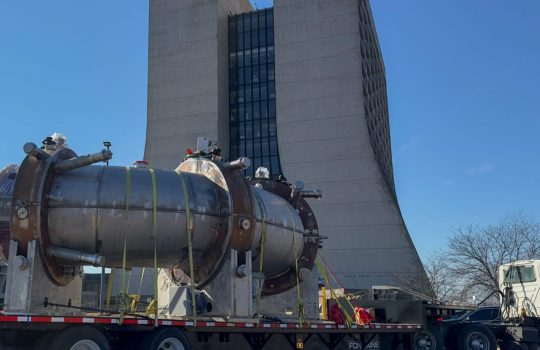NOvA study sets tighter limit on sterile neutrinos
University of Wisconsin-Madison, Feb. 26, 2025
The NOvA collaboration scientists recently published a study finding no evidence of sterile neutrinos, but their work puts the tightest constraints on parameter space to date for where sterile neutrinos could be found.

